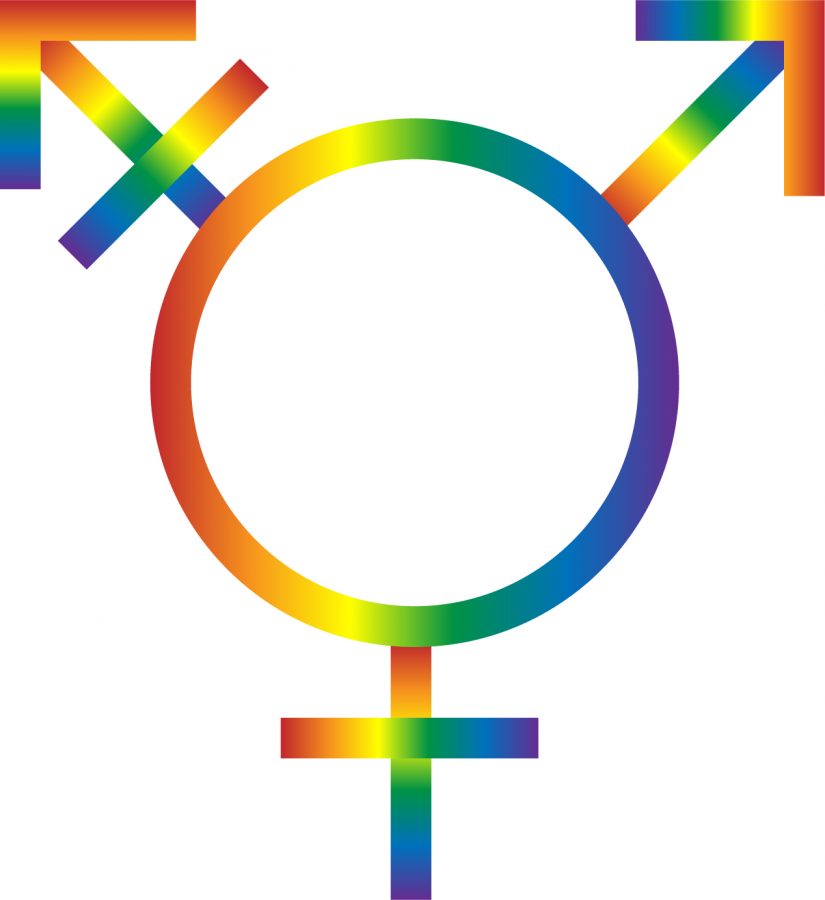Town Council Learns About LGBTQ Allyship
Jaime Collins presented to Platteville Common Council on how to be an ally
Elizabeth Kaiser graphic
On Tuesday, Jan. 26, the Platteville Common Council held a work session to help members of the local government become allies as part of an ongoing effort to improve community inclusivity and equity. The session featured a presentation by Southwest Wisconsin Rainbow Alliance President Jaime Collins, a long-time Platteville resident and local transgender woman, which focused on issues LGBTQ individuals face in their communities.
Collins’ presentation addressed what it means to be an ally, provided some background on the LGBTQ community and included several points which focused on the complexities of gender identity. She explained how the gender binary started and developed to what it is today and throughout all of human history, resulting in a hard divide into the current binary. She specifically focused on the fact that gender and gender norms are social constructs which were not built — and cannot be changed — in one day. The perceptions of gender and sexuality in our society have deep roots in subjective reality and unconscious bias, which must be broken with critical thinking in order to improve. During this brief overview of gender in our society, Collins also briefly talked about her experience crossing the gender divide.
“It’s not my appearance or my genitals or who I like that determines my identity; it’s in my heart and in my soul,” Collins said during the presentation.
The presentation then moved on to discuss the differences between biological sex, gender identity and expression and sexual orientations. Collins provided an abridged list of various labels for people who are a part of the LGBTQ community for the council members to reference before moving on to proper use of pronouns – including a handful of neo-pronouns, such as “ze” and “zym,” which have been growing in popularity. The use of proper pronouns is, according to Collins, a part of common human respect, and it is therefore important to be aware of and use a person’s proper pronouns. Collins encouraged council members to “ask, not assume” when it comes to people’s pronouns and to make their best efforts to use the correct pronouns, even if they make mistakes or become confused at times, and to try using inclusive language whenever possible.
“It’s okay to make mistakes with this; we are all learning,” said Collins.
Collins encouraged those present at the session to take an active role in improving their community to include LGBTQ individuals, stating that goodwill requires action in order to enact change. She offered several small ways to work toward this; the use of more inclusive language when speaking to groups (i.e. saying “everyone” rather than “ladies and gentlemen”) and speaking up against insensitive jokes or stereotypes were just two prominent examples. Another piece of advice given during the session was to avoid assumptions about who a person is or who they are attracted to based on appearances, and that a person’s orientation or identity does not predispose them to certain activities or ideas.
“Ally is a verb; it takes action,” said Collins when defining LGBTQ allyship.
The presentation concluded with information on what may be considered a microaggression toward LGBTQ people, especially transgender people, and how they can be avoided or countered in everyday life. Collins discussed why the use of deadnames of transgender people – the name they were given at birth and since changed – should be avoided, explaining that their use can often be linked to trauma associated with the name. She also shared a story about a time she experienced a microaggression which has stuck with her: once in a restaurant, a woman stared at Collins the entire time she was there. Collins described the situation as uncomfortable and somewhat humiliating due to the intense gaze she was held under while simply out living her life.
During this time, the audience was reminded that it is okay to make mistakes, but they must continue actively trying to improve if they wish to enact a positive change in the community. Collins closed with statistics regarding the health and well-being of LGBTQ individuals, namely the significantly higher risk of suicide for transgender individuals, and explained that taking steps to make them feel welcome in the wider community may help save lives in the long run.
This work session served as one of several meetings the council has planned in conjunction with the Southwest Wisconsin Rainbow Alliance as part of their ongoing efforts to improve community inclusivity, diversity and equity. Another major aspect of these efforts is the newly formed Taskforce for Inclusivity, Diversity and Equity (TIDE), which was authorized recently and saw its first 10 members appointed on Tuesday night during the regular Common Council meeting, consisting of a combination of interested community members and city officials. Common Council President Barbara Daus stated during the meeting that the TIDE will not be limited to these 10 members and hopes for more to join once it is off the ground.




